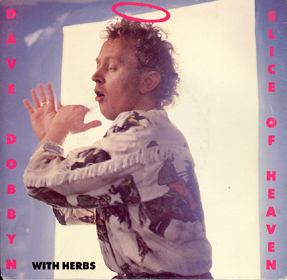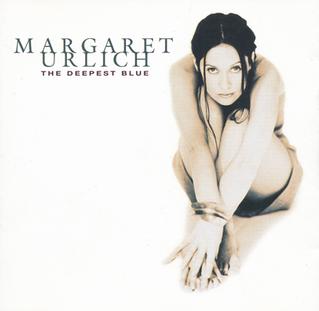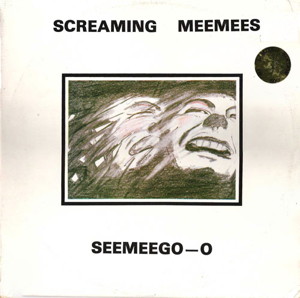
Sir David Joseph Dobbyn is a New Zealand musician, singer–songwriter and record producer. In his early career he was a member of the rock group Th' Dudes and was the main creative force in pop band DD Smash. Since then he has released the majority of his recordings as a solo performer.

Goodshirt are an alternative/pop/rock band from Auckland, New Zealand. The band formed when keyboardist Gareth Thomas left his computer recording setup with the Fisher brothers, Rodney and Murray, for safe keeping.
The following lists events that happened during 1986 in New Zealand.

"Slice of Heaven" is a single by New Zealand singer-songwriter Dave Dobbyn with the band Herbs, released in 1986 on the soundtrack of the animated motion picture, Footrot Flats: The Dog's Tail Tale. The single reached No. 1 on the New Zealand Singles Chart for eight weeks and on the Australian Singles Chart for four weeks. It appears on Dobbyn's 1988 album, Loyal.

"Wild Wild Life" is a song by American rock band Talking Heads, released as the lead single from their seventh studio album True Stories. It was the band's third and last top 40 hit on the US Billboard Hot 100.

Margaret Mary Urlich was a New Zealand singer who lived in Australia for most of her career.

"Where Is the Love" is a popular song written by Ralph MacDonald and William Salter, and recorded by Roberta Flack and Donny Hathaway. Released in 1972 from their album, Roberta Flack & Donny Hathaway. It peaked at number five on the Billboard Hot 100 singles chart and spent a week each at number one on the Billboard Easy Listening chart and R&B chart. Billboard ranked it as the No. 58 song for 1972. The song won a Grammy Award for Best Pop Performance by a Duo or Group with Vocals.

Chameleon Dreams is the second solo album by New Zealand-born singer-songwriter Margaret Urlich, which was released in September 1992. The first single from the album, "Boy in the Moon" (August), reached the top ten on the New Zealand singles chart. The album peaked at No. five in Australia and No 18 in New Zealand and achieved platinum status in both countries. Three other singles were issued from the album, "Human Race", "(I Don't Want to be) Second Best" and "Burnt Sienna" (July).
When the Cat's Away is a New Zealand female vocal group and covers band formed in 1985. They are best known for their cover of the Blue Mink assimilationist song "Melting Pot", which became a New Zealand number one hit for them in 1988. In 2021, the band members were inducted into the New Zealand Music Hall of Fame.

The Deepest Blue is the fourth solo album by Margaret Urlich, released in July 1995 through Columbia Records. In November 2010 the album was re-released in digital form on various online music retail websites, including iTunes in New Zealand and Australia.

Unknown Mortal Orchestra is a New Zealand psychedelic rock band from Auckland and now based in Portland, Oregon. fronted by multi-instrumentalist Ruban Nielson, assisted by his brother Kody Nielson and bassist Jacob Portrait. Nielson started the band in 2009, initially as a solo project. The band's first album was released in 2011 on Fat Possum Records.

"Sensitive to a Smile" is a single from the New Zealand reggae band Herbs from the Sensitive to a Smile album. The single reached #9 in the New Zealand chart.
Peking Man were a 1980s New Zealand new wave band made up of Margaret and Pat Urlich, Tim Calder, Perry Marshall, Jan Foulkes, Neville Hall, John Fearon and Jay F-bula. The band had a number of hits in their homeland.

"Rip It Up" is a song by Scottish indie pop band Orange Juice, released in 1983 as the second single from their 1982 album of the same name. The song became the band's only UK top 40 success, reaching No. 8 on the chart. "Rip It Up" signalled a departure from the sound of the band's earlier singles, with Chic-influenced guitars and using a synthesiser to create a more disco-oriented sound.

"Nature" is a 1969 single by New Zealand band The Fourmyula. The song peaked at number one in the New Zealand singles chart in 1970, won the APRA Silver Scroll songwriting award the same year, and in 2001 was voted the top song in APRA New Zealand's Top 100 New Zealand Songs of All Time. "Nature" was notably covered in 1992 by New Zealand rock band The Mutton Birds.

"Melting Pot" is the 1969 debut single from UK pop group Blue Mink. The song was written by Blue Mink's lead singer Roger Cook and long-time songwriter partner Roger Greenaway.

"See Me Go" is a 1981 single by New Zealand post-punk band the Screaming Meemees. It is notable for being the first New Zealand song to debut at number one in the New Zealand singles chart.

"Escaping" is the debut solo single of New Zealand singer Margaret Urlich. The song was released in September 1989 by CBS and charted at number one for three weeks in the New Zealand singles chart, later reaching number 17 in Australia. It is the opening track on Urlich's debut album, Safety in Numbers (1989), and also features on her 1994 live album Live.

"Number One (Remember When We Danced All Night)" is a song from New Zealand singer Margaret Urlich. The song was released in early 1990 in New Zealand as the second single from her debut studio album, Safety in Numbers, and in September 1990 as the third single from the album in Australia. The song features on her 1994 live album Live.

Peking Man is the self-titled debut studio album by New Zealand new wave band Peking Man. Released in early July 1986 by CBS Records International, the album, produced by Bruce Lynch, had numerous successes in New Zealand. These included 8 award wins at the 1986 New Zealand Music Awards and a peak of No. 6 on the country's charts. It remains the band's only studio album as vocalist Margaret Urlich left the group to begin a solo career mere months after its release.

















